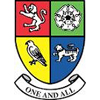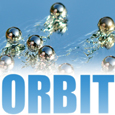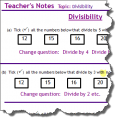ResourceInfoTable: Difference between revisions
(Created page with "{{#ask: Category:ResourceInfo |format=template |introtemplate=ResourceTable/Intro |template=ResourceTable/Row1 |outrotemplate=ResourceTable/Outro |link=none |limit=15 }}") |
No edit summary |
||
| Line 2: | Line 2: | ||
|format=template | |format=template | ||
|introtemplate=ResourceTable/Intro | |introtemplate=ResourceTable/Intro | ||
|template= | |template=ResourceInfoTableRow | ||
|outrotemplate=ResourceTable/Outro | |outrotemplate=ResourceTable/Outro | ||
|link=none | |link=none | ||
|limit=15 | |limit=15 | ||
}} | }} | ||
Revision as of 12:09, 10 September 2012
| 21st century show and tell | Digital Media | |

|
A DEFT case study with Dinnington Comprehensive, Rotherham
This cross curricula(i) case study focusses on Digital Literacy, in particular using E-skills(i) to: support skills in writing/recording for a target audience and to improve communication and research skills through the process of creating OER(i)s. The case study illustrates issues involved in the use of video(i) for educational purposes, with an emphasis on students producing and releasing OERs. The method could also be used for self/peer assessment(i) with pupils. One of the lesson ideas from the case study is available as a separate resource at Creating Instructional Videos. |
Teacher Education TE0107 |
| 88 Miles per Hour | Astronomy | |

|
Aiming to win 'A level' recruits with a trip to the strange world of relativity and quantum mechanics The lesson initially looks at time travel, however the overriding theme is that of modelling(ta) and scientific method(ta). It aims to show students that it is acceptable to get a result that doesn't fit with what you expect. It just means you need to change what you expect next time!
|
Science Secondary SC0023 |
| A global dimension to science education in schools | Global education | |

|
Science and technology beyond the Western world This study unit is aimed at teachers who would like to give a more global feeling to their teaching. It shows how to source articles with an emphasis on science and technology beyond the Western world and how to incorporate them into teaching the curriculum.
|
Science Primary Secondary Teacher Education External Resource TE017 |
| Active Engagement | Group work | |

|
Secondary Teacher Education External Resource TE0081 | |
| Alien Life | Astronomy | |

|
Are we alone? This last of six presentations to recruit students for A level physics, is more light-hearted and simpler than the two previous resources. It considers the arguments around whether or not humanity is alone and includes an initial look at the bizarre nature of many of the claims of alien encounters - including a fictional one for good measure - before moving onto the more serious side of alien hunting. It concludes with a probabilistic argument based on the Fermi paradox.
|
Science Secondary SC0024 |
| All in a Jumble | Handling Data | |

|
My measurements have got all jumbled up! Swap them around and see if you can find a combination where every measurement is valid. This lesson idea is about applying and consolidating(ta).
The collection of NRICH activities are designed to develop students capacity to work as a mathematician. Exploring, questioning, working systematically, visualising, conjecturing, explaining, generalising, justifying, proving are all at the heart of mathematical thinking. This particular resource has been adapted from an original NRICH resource. NRICH promotes the learning of mathematics through problem solving. NRICH provides engaging problems, linked to the curriculum, with support for teachers in the classroom. Working on these problems will introduce students to key mathematical process skills. They offer students an opportunity to learn by exploring, noticing structure and discussing their insights, which in turn can lead to conjecturing, explaining, generalising, convincing and proof. The Teachers’ Notes provided focus on the pedagogical implications of teaching a curriculum that aims to provoke mathematical thinking. They assume that teachers will aim to do for students only what they cannot yet do for themselves. As a teacher, consider how this particular lesson idea can provoke mathematical thinking. How can you support students' exploration? How can you support conjecturing, explaining, generalising, convincing and proof?. |
Maths Secondary M0063 |
| Assessment for Learning | Assessment | |

|
Research shows that good practice in assessment for learning can bring about significant gains in pupil attainment Assessment for learning has been defined as the process of interpreting evidence to decide where learners are in their learning, where they need to go and how best to get there. When assessment(ta) for learning is well established in a classroom, pupils are actively involved in their learning; able to judge the success of their work and to take responsibility for their own progress.
For some shorter more focused documents drawn from this DfES document see Giving Oral Feedback, Giving Written Feedback, Sharing Learning Objectives and Outcomes. |
Secondary Teacher Education External Resource TE0082 |
| Using Assessment to Raise Achievement in Maths | Assessment | |

|
Learning goals; self & peer assessment; effecting questioning; marking and case studies This resource explores approaches to assessment(ta) in maths, including the sharing of learning objectives(ta), group work(ta), whole class(ta) assessment, questioning(ta) and more. Four case studies serve as useful discussion prompts to share practice(ta). This .doc version of the QCA's 'Using assessment(ta) to Raise Achievement in Maths' allows schools to select parts of the document that are most relevant to them.
|
Maths Primary Secondary Teacher Education Books External Resource TE0074 |
| Astronomy Master Class | Astronomy | |

|
An overview of of six astronomy-related lessons resources (SC019 to SC0024) The Astronomy Master Class was developed to inspire the next generation of scientists and in particular physicists. Although this course of 6 lessons is framed mostly around the science of astronomy, it draws on many themes from physics and aims to show how they all can link together. Additionally, it is structured so that it deliberately does not cut across material in most standard GCSE science courses and does not aim to answer every question. A deliberate part of the design was to visit each topic area only briefly and leave students hungry for more.
|
Science Secondary SC0018 |
| Blog skills for subject specialists | Blogs | |

|
Secondary Teacher Education External Resource TE0036 | |
| Building bridges from a piece of A4 paper | Force | |

|
A bridge too far... This activity supports a number of learning types:
|
Science Primary SC0048 |
| Celestial Wanderers | Geology, Solar system, History, Astronomy | |

|
Why would we fly to another planet to study its rocks? Drawing on a rich range of sources, this presentation allows the teacher to introduce planetary geology(topic), something not normally studied until degree level. It uses the narrative(ta) of the Voyager Probes journey to illustrate the vastness of the solar system(topic) and also the challenges of designing a spacecraft to travel that far. It ends with a discussion of the history(topic) of Mars, and how the differences between it and the Earth resulted in Mars loosing its water and atmosphere whereas we have kept ours.
|
Science Secondary SC0021 |
| Changes in Science education | Science Education, Science curriculum, Curriculum planning | |

|
Get down to the core of why we teach science Providing an overview of current issues in UK science education, this unit examines what type of science the curriculum should cover and for what purpose. It introduces students to practical problems in the delivery of an effective science curriculum(topic), and particular questions at all three educational tiers - primary, secondary and tertiary - are touched on. The unit can be used to assist curriculum planning(topic)
|
Teacher Education External Resource TE013 |
| Changing KS3 Questions for Engaging Assessment | Assessment | |

|
A large set of questions grouped by topic, paper, and national curriculum level Test questions are often seen as uninteresting and useful only to assess pupils summatively. This resource however allows questioning(ta) to be used to support pupils’ revision, creativity and higher order(ta) problem-solving in class. The tasks could be conducted via whole class(ta) discussion(ta) or assessment(ta), perhaps using mini-whiteboards(tool), or in small group work(ta) situations.
|
Maths Secondary Teacher Education M0023 |
| Circles, frustums and cylinders revision | Area | |

|
Measure the volumes of objects This resource offer students the opportunity to engage in active learning(ta) - measuring and calculating using large size cylinders and frustums. This lesson brings great opportunity for small group "dialogic teaching(ta)". Open-ended and closed questioning(ta) of students can be used to draw on their existing knowledge and extend their understanding. The teacher provides a practical commentary below.
|
Maths Secondary M007 |
